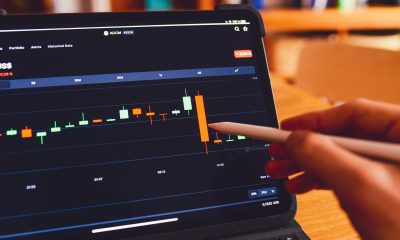Africa
Why Chinese Auto Brands Are Interested in Morocco
Chinese auto brands in Morocco represent 1.2% of sales, up from 0.8% last year, with potential to reach 1.5%. Although figures are small, growth is notable, particularly in electric vehicles, where 25% are Chinese. After a past withdrawal due to quality issues, these brands have returned, adhering to Euro 6 standards and improving market integration.

The round table of the Cercle des ÉCO, under the theme “Automobile: Chinese auto brands in force” allowed Adil Bennani, president of AIVAM, Achraf Hajjaji, DGA of Auto Nejma, and Saad Menioui, director of the Changan brand in Morocco, to return to the penetration and strategies of Chinese brands on the Moroccan market.
The 6 or 7 Chinese auto brands present in Morocco represent 1.2% of sales
This seems low, unless you take into account the time they have been on the market. Adil Bennani argues that last year the figure was 0.8% and hopes that by the end of the year it will be 1.5%. However, the margin for growth is huge if we remember that 30% of global production comes from China.
Focusing on electric vehicles, the president of AIVAM notes that in Morocco, one in four electric vehicles is a Chinese auto brand. The figures are very small, but the growth is big. The 6 or 7 brands present in the Kingdom are almost all affiliated with AIVAM. One or two are in the finalization phase, but all are affiliated groups. To explain such a recent arrival of Chinese auto brands, Adil Bennani gives the example of when they tried to establish themselves in 2003 or 2004.
The product was not ready and the strategy was to have the lowest price, to be the least equipped. The tariff dismantling had not taken place, so Europeans and Chinese were paying roughly the same customs duties. Vehicles from China were 30, 40 or 50% cheaper. Very quickly, there was a craze, in a class of the population that was not the one buying cars at that time, and to whom credit organizations lent money. Adil Bennani remembers a double effect: dissatisfied customers and unpaid bills.
In response to this, AIVAM introduced the Euro 4 standard, in order to professionalize the sector using a normative tool, as far as possible. This is why Chinese auto brands then withdrew from the market. The countries that did not follow this path, in the Middle East or our neighbors, saw the take-off of these brands. They had enormous after-sales problems, but these were resolved by the volumes and the learning curve of the distributors.
In Morocco, Chinese auto brands are now coming back through the front door, in accordance with standards, with the required quality, etc. The country is now the only Euro 6 market on the African continent. According to studies, it has consumption habits closest to those of Europe.
__
(Featured image by oskaline via Pixabay)
DISCLAIMER: This article was written by a third party contributor and does not reflect the opinion of Born2Invest, its management, staff or its associates. Please review our disclaimer for more information.
This article may include forward-looking statements. These forward-looking statements generally are identified by the words “believe,” “project,” “estimate,” “become,” “plan,” “will,” and similar expressions. These forward-looking statements involve known and unknown risks as well as uncertainties, including those discussed in the following cautionary statements and elsewhere in this article and on this site. Although the Company may believe that its expectations are based on reasonable assumptions, the actual results that the Company may achieve may differ materially from any forward-looking statements, which reflect the opinions of the management of the Company only as of the date hereof. Additionally, please make sure to read these important disclosures.
First published in LES ECO.ma. A third-party contributor translated and adapted the article from the original. In case of discrepancy, the original will prevail.
Although we made reasonable efforts to provide accurate translations, some parts may be incorrect. Born2Invest assumes no responsibility for errors, omissions or ambiguities in the translations provided on this website. Any person or entity relying on translated content does so at their own risk. Born2Invest is not responsible for losses caused by such reliance on the accuracy or reliability of translated information. If you wish to report an error or inaccuracy in the translation, we encourage you to contact us

-

 Fintech3 days ago
Fintech3 days agoFirst Regulated Blockchain Stock Trade Launches in the United States
-

 Africa2 weeks ago
Africa2 weeks agoAir Algérie Expands African Partnerships
-

 Markets6 days ago
Markets6 days agoRising U.S. Debt and Growing Financial Risks
-

 Business2 weeks ago
Business2 weeks agoDow Jones Near Record Highs Amid Bullish Momentum and Bearish Long-Term Fears

























